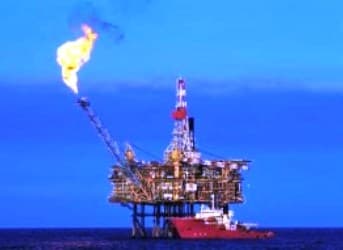The population in the eastern Mediterranean region is expected to increase by as much as 35 percent in the next 20 years. Natural gas deposits in the Levant Basin are expected to keep the energy needs of the growing population satisfied indefinitely. Governments in the region are working quickly to get excess natural gas to the international market. Cyprus is already taking preliminary steps to start construction on a liquefied natural gas terminal and energy companies are queuing up in anticipation of an Israeli court decision on gas export polices. Ongoing conflict in Syria and territorial disputes between Israel and Lebanon, however, may interfere with ambitions for the natural gas deposits in the Mediterranean Sea.
Cyprus reported its first offshore natural gas discovery just two years ago and is already laying the groundwork for an export terminal. Construction could start as early as 2015 and LNG exports are planned for 2020. Executives there said they'd likely have to make accommodations for natural gas from Israel and Lebanon in their future export plans. Last year, one of Australia's biggest energy companies, Woodside Petroleum Ltd., said it would fork over more than $2 billion for a stake in the Leviathan natural gas field. The company said this week it was waiting patiently for the Israeli courts to make a decision affecting gas export policies.
Related article: Canada's LNG Dream – Racing Ahead…at a Snail's Pace
The U.S. Geological Survey estimated the Levant Basin has mean probable undiscovered natural gas resources of 122 trillion cubic feet. At current rates of consumption, that may be enough to meet domestic natural gas demand almost indefinitely. Leviathan, the biggest of the Levant fields with 18 trillion cubic feet of estimated recoverable reserves, was discovered three years ago and could start production by 2016. Tamar, with an estimated 10 trillion cubic feet of reserves, started production this year, four years after discovery.
The U.S. Energy Department's Energy Information Administration said nearly all of the "significant" natural gas discoveries of natural gas made in the last 10 years or so are in the Levant Basin. Most of the discoveries were made in Israeli waters. Lebanon contends some of the natural gas lies within its territorial waters and two years ago, the Israeli military launched drones over its gas fields in the Mediterranean, saying it was fearful of a Hezbollah attack. Hezbollah took its 2006 war with Israel as an sign it could take on its adversaries using conventional military means and, in 2011, Hezbollah pledged to use whatever means necessary to defend Lebanon's national interests.
The EIA said armed conflict and territorial disputes could limit the natural gas potential in the region. In terms of oil, the EIA said Syria had the largest reserves as of January. Hezbollah strongholds in southern Beirut were the target of recent bombing campaigns as the Shiite organization faces more threats since acknowledging it was fighting alongside pro-government forces in Syria. Last week, Hezbollah Secretary-General Hassan Nasrallah took credit for an explosion that wounded four Israeli soldiers who wandered across the border.
Related article: Can the US Export its Way to Energy Independence?
There is no sign the conflict in Syria is letting up. The U.N. Security Council said Wednesday it scheduled an emergency meeting to discuss the alleged use of chemical weapons in Syria. Pro-Western lawmakers in Beirut, meanwhile, said Hezbollah's security crackdown following last week's bombing was "an aggression against the state." The White House said the use of chemical weapons in Syria "crossed clear red lines that have existed within the international community for decades." But that was in June, the last time allegations of chemical weapons surfaced.
The population in the Mediterranean region could reach 62 million by 2030. While representing less than 1 percent of the total proven oil and natural gas reserves, prolific offshore basins could alter the regional markets substantially. Conflict, however, could inhibit much of the regional development in the short-term. With most signs pointing to an escalation of the crisis in Syria, the energy sector won't be the only thing redefined in terms of regional dynamics.
By. Daniel J. Graeber of Oilprice.com


















